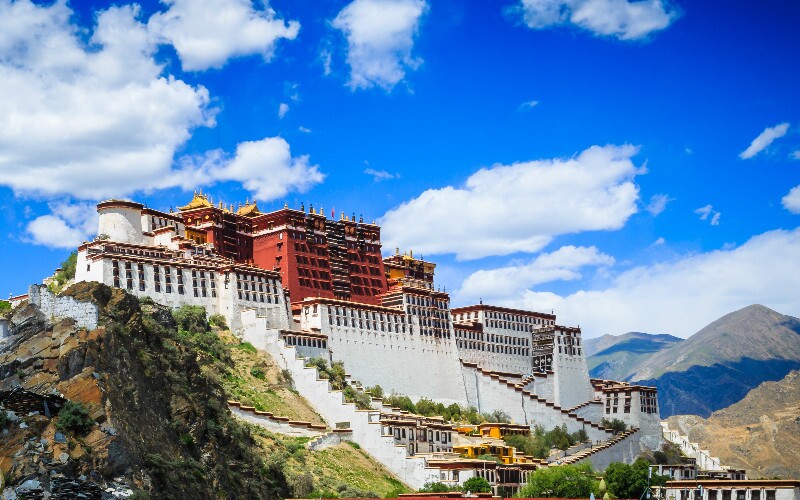20 Best Reasons To Explore Diverse Chinese Dishes
20 Best Reasons To Explore Diverse Chinese Dishes
Blog Article
Top 10 Tips On Shopping In The Street Markets In China
1. Arrive earlyTip: Markets are more likely to offer bargains in the morning hours, when vendors are set up.
Pro: Shopping earlier gives you an increased selection of goods and better bargaining opportunities.
Con: It is a requirement to get up early. This might not be a good fit for every person's schedule.
2. Bring Cash
The majority of street vendors prefer cash payment however, mobile payment options like WeChat Pay and Alipay are growing in popularity.
Pro: Making cash payments helps transactions run more smoothly and gives you negotiation leverage.
Con: Carrying cash can increase the chance of losing it or theft in crowded areas.
3. Learn Basic Mandarin
Be familiar with phrases like "Zhege qian duoshao?" (How Much is This?) Understanding phrases such as "Pianyi duoshao ban" (Can I make it less expensive?) or 'Zhege doshao qian?' can help you effectively communicate. can aid in communicating effectively.
Pro: Builds relationships with local vendors, and displays respect for their culture.
Cons: A limited vocabulary may still leave room for misunderstandings.
4. Check your goods carefully
Check the items carefully for imperfections or inconsistencies. This is crucial when it comes to electronics, clothing crafts, and other products.
Pro It's about getting what you get for your money And you don't have to worry about disappointment.
Con: Expensive and can cause annoyance to vendors.
5. Bargain Confidently
It is not a bad idea to bargain, as it is a common practice on the streets. Aim to cut the price by 50-70% initially.
Bargaining is a great way to cut costs.
Pros: It could be intimidating for people who aren't familiar with the procedure.
6. Beware of counterfeits
Beware of buying products with a brand name, such as bags, watches, and electronic devices. These are usually copyright.
Pro: No need to spend money on imitations that are cheap.
Pro: Genuine products may be difficult to find and are more expensive.
7. Local Customs
Take locals' shopping habits, negotiation, and interaction with vendors to guide you to determine your own style of operation.
You'll be able blend in easily and avoid cultural mistakes.
Pro: Can take some time for you to fully comprehend the what is expected of you.
8. Keep Valuables Secure
Tip: Keep your phone and wallet in a pocket or anti-theft bag to avoid pickpockets at busy markets.
Reduces the risk of theft in high-traffic areas.
Pro: Additional measures could appear restrictive or uncomfortable.
9. Do a test before you buy (Food)
Try to get samples of snack or food items that are dried before you buy.
Pro: It ensures that you're satisfied with the taste and quality of the food.
Con: Some sellers might insist on you buying after giving a sample.
10. Know the market's focus
There are specific products in each market, such as antiques and souvenirs in Beijing's Panjiayuan or Shanghai's Yuyuan Market. It's essential to study prior to time to achieve your shopping objectives.
It saves you time and can help you narrow your concentration.
Cons: Your freedom of movement is limited if your research is strict.
Visit street markets to reap the benefits
Unique Finds - You'll shop for items that aren't available anywhere else including local food items and unique arts and crafts.
Low Costs Street markets typically have better prices than shopping malls or other shops.
Cultural Experience: Engaging with vendors and walking through the markets is an excellent method to become immersed in local culture.
Markets are a fantastic source of variety of everything from food and clothes to items for souvenirs.
Cons of Shopping in Street Markets
The likelihood of finding copyright goods is a chance of finding fake or inferior products.
Crowds - Markets can get super busy during weekends or during the holidays.
Pressure from vendors: Some vendors use aggressive sales tactics that can overwhelm the experience.
There are no returns on most purchases. All sales are final and there's very little opportunity for exchanges or refunds.
If you're ready and follow these tips, you will be able to take advantage of the best of China's vibrant streets markets. Check out the recommended read more about this incredible site for more advice including xiang cuisine.html, top three buddhist temples in chengdu, datong beijing high speed railway schedule and timetable, shopping in nanjing, great tang all day mall xian.html, guilin travel tips, shopping in tibet, eating in shangri la, shopping in kashgar, a wonderful landscape painting lijiang river and more.
Top 10 Tips For Visiting Temples During Different Seasons In China
1. Visit in Off-Season(Autumn/Winter).Tip. You should consider visiting the famous Chinese temples during times when the weather is cooler (usually from November to February). There are fewer tourists and it's cooler.
Pro: It's quieter and provides peace and tranquility.
Con: The temperature may be cooler, which can make the temple tour in outdoor locations uncomfortable.
2. Prepare yourself for extreme weather.
The temperatures can be quite different throughout the seasons. Winters can be extremely cold, but summers can be scorching. Pack according to the weather forecast.
Pro: You'll be prepared for any kind of weather, and be comfortable during your stay.
Con: Having to pack for seasonal extremes is inconvenient if you travel with a light.
3. Visits to Vibrant Flora in Spring and the summer months.
Tips: If you visit temples between spring and summer, you can enjoy beautiful gardens with blooming flowers and beautiful landscapes.
The grounds of the temple are beautiful to visit.
Con The summer months in the United States are often extremely hot and packed. This is especially true on national holidays.
4. Take into consideration festivals and special events.
Plan your travel around festivals like the Mid-Autumn Festival or Chinese New Year. These festivals feature a wide range of rituals and celebrations as well as an opportunity to take in the rich culture of the temple.
Pro Temples are full of traditional and lively activities. They offer an unforgettable experience.
Con: Temples are extremely crowded. Also, accommodation prices may spike in the time of festivals.
5. Avoid Peak Holiday Seasons
Tip Beware of visiting during most popular tourist times (e.g., Chinese New Year, Golden Week in October) during which temples may be filled with local as well as international tourists.
Pro: Peaceful visits, with no crowds. Offers an uplifting experience.
Con: You'll be missing the special festival events during the peak seasons.
6. Make sure to check Temple Closures in Winter.
You should check ahead to find out whether the temples you intend to visit are open or closed during the winter months. This is particularly true for those located in remoter regions or areas. Always check ahead of time.
It stops you from taking unnecessary trips, and lets you plan your other things to do.
Con: There may be a reduction in hours of operation or temples closed entirely to allow renovations.
7. Early Morning Visits to the Beach in Summer
Be sure to arrive early if you are visiting in summer, to avoid the heat at midday. Temples in many cities are open in the early morning as there are fewer people and less heat.
Cons: The crowds are not as loud and the weather is cooler.
Cons: It requires the early morning to get up which isn't ideal for all.
8. Be prepared for the rainy season
It can be very rainy in summer, particularly in the southern part of China. Take rain gear with you or an umbrella if visiting during the summer.
Pro: Even in rain, you are able to take in the beauty of the temple.
Cons: Rain can make outdoor activities more difficult and cause temple grounds to become slippery.
9. The fall season is the ideal time to visit mountain temples
Tips: Autumn is an ideal season to go to temples in mountainous regions (e.g., Mount Wutai or Mount Emei) as the temperatures are pleasant and the fall foliage creates stunning sceneries.
Pros: The cooler temperature make outdoor activities and hiking more enjoyable, as well as the views from the mountains are stunning.
Con: Popular mountain shrines still draw huge crowds at weekends and during holidays.
10. Take a look at the Lunar Calendar for Specific Events
Tip: Many Chinese temples use the lunar calendar. Many events or rituals are linked to lunar calendar dates. Search the calendar for important temple events like Buddha's Birth as well as the Lantern Festival and other ceremonies.
Pros: Discover distinctive cultural practices and gain deeper understanding of local spiritual traditions.
Cons: It could require more planning and time to ensure that your travel dates are aligned with the lunar calendar.
The benefits of seasonal visits to Chinese Temples
Less crowds during off-season visits provide a more tranquil and contemplative experience.
Festivals: Cultural festivals provide an opportunity to gain knowledge about the local traditions that are both cultural and religious.
Beautiful Scenic Beauty. Spring or Autumn are great times to enjoy stunning landscapes. The vibrant gardens around temples can also be a good option.
The temperatures are cooler in winter and autumn.
Cons of Visits to Chinese Temples in Season
Unpredictable weather: The winter can be very cold, and the summer is too hot. This could affect your ease of living.
Temple Closures: Certain temples may be closed for a limited time or closed during the off-season or in extreme weather.
People are crowded during festivals Holidays and festivals can bring large crowds, which makes it difficult to feel the peaceful ambience of the temple.
Limited Activities: If you are traveling outside of the season, some special events during the season may not be scheduled.
When you select the appropriate time for your trip and planning accordingly, you can ensure a more enjoyable and meaningful time at China's renowned temples. Understanding the changing seasons will make sure you get maximum enjoyment from your visit, regardless of whether you seek peace and quiet or cultural celebrations. View the best learn why this spot is so famous for website tips including the top 4 movies about kung fu and chinese culture, shopping in kashgar, shopping in suzhou, entertainment in hong kong, a wonderful landscape painting lijiang river, guilin travel tips, basha miao village, ganden temple, eating in dunhuang, lion forest garden suzhou classical garden and more.